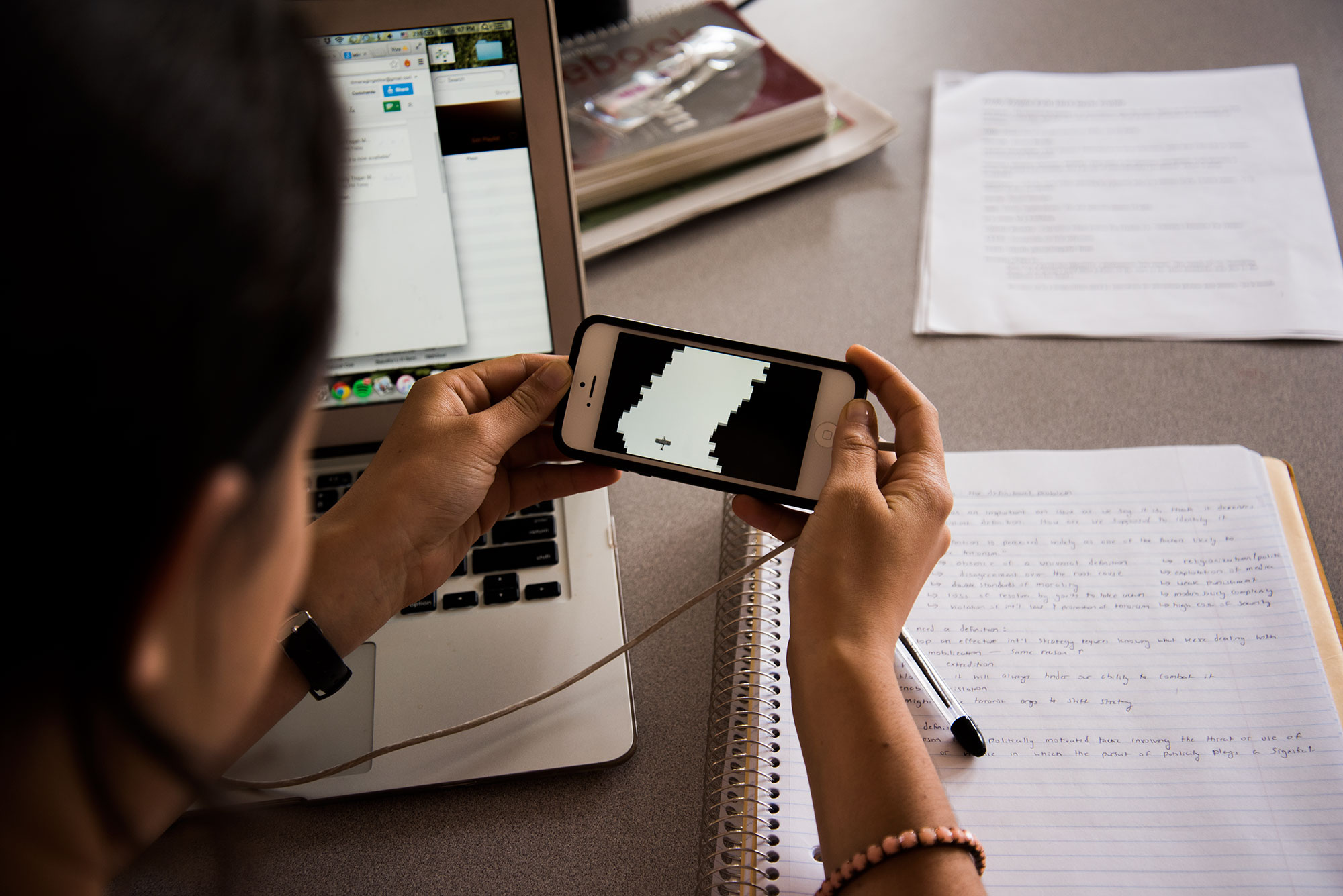Students develop app for the visually impaired

App for that · Visually impaired app users don’t need to see the graphics to play StealthFly. The game uses sounds to communicate its obstacle locations. Users can enable the graphics when playing StealthFly. – Photo illustration by Mariya Dondonyan
Students Kate Glazko, Akhilesh Saklecha and Roy Zheng recently launched StealthFly, a new mobile game playable by the visually impaired via the Apple App Store, Google Play and Amazon Appstore.
In similar games such as Temple Run, players often have to avoid obstacles such as rocks or cracks. But in StealthFly, players have to avoid sound obstacles. In the game, the user pilots a plane to evade obstacles based on note pitches that the game emits. A higher pitch indicates that the obstacle is more toward the right. Conversely, a lower pitch indicates that the obstacle is more to the left. This feature allows users who are visually impaired to play the game since they know where the obstacles will be placed based on the sound.
Glazko, a senior majoring in computer science and business administration, said that unlike most games, graphics are not necessary to this app.
“We made the game so you can play it without visual graphics,” Glazko said. “How it works is that all the instructions are voice prompts and the game itself is played so that sound creates the obstacles.”
The game also contains optional graphics enabling those who are not visually impaired to play it. The game has already been tested by people with visual impairments.
The app was submitted into a competition known as SS12, a hack-a-thon that encourages undergraduate and graduate programmers to develop innovative and empowering software projects aimed at benefiting disabled persons.
“It’s a great competition because there aren’t so many apps for accessibility out there, and this competition encourages people to explore those issues and accessibility,” Glazko said. “For me, for instance, I didn’t realize how many things are impossible to do for people who can’t see the screen.”
The students eventually went on to win the title of 2015 U.S. SS12 Champions. According to Glazko, the competition helped the three students get their app noticed.
“[SS12] is a good way to get apps into the accessibility marketplace and websites and other things,” Glazko said. “It gave us some assurance that what we had was a good idea and that people would actually want it.”
Glazko said winning the hack-a-thon made the trio even more motivated to complete the application, especially after seeing the support they received at SS12.
“[Our team hopes] to reach out to several blogs and mailing lists of people that we’re connected with or that we have seen on the web that talk about accessible apps, and we hope to get it out there,” Glazko said.
Zheng, a business administration and computer science major as well as one of the project’s lead programmers, said he hopes this won’t be the last app aimed at serving the visually impaired community.
“What we hope to do is bring this genre of game to this population,” he said.
Glazko said she wants the game to be used as a tool to influence others in the gaming industry.
“We hope this game inspires people to realize that there is an entire group of people that can’t play mainstream games,” Glazko said.
